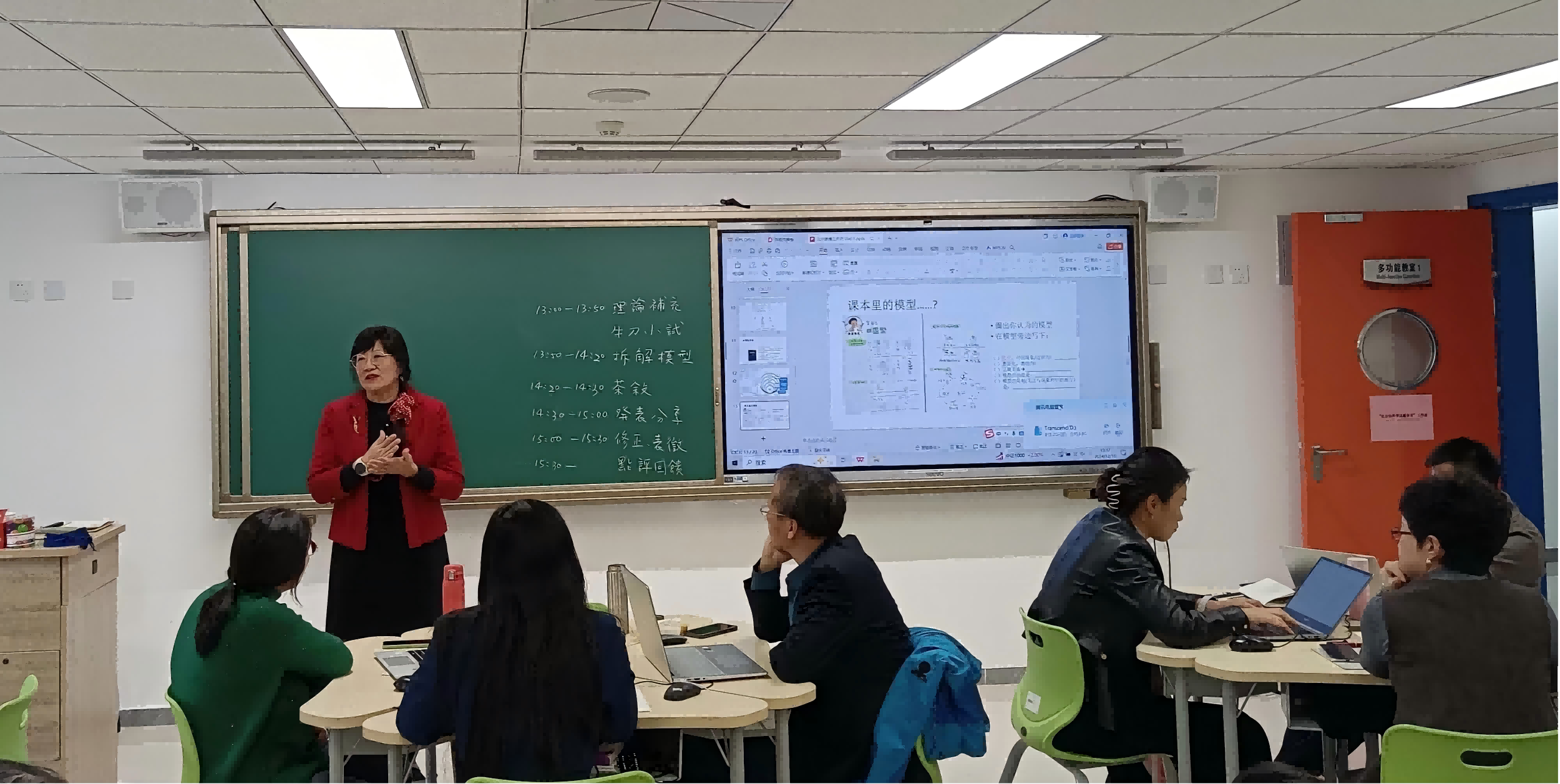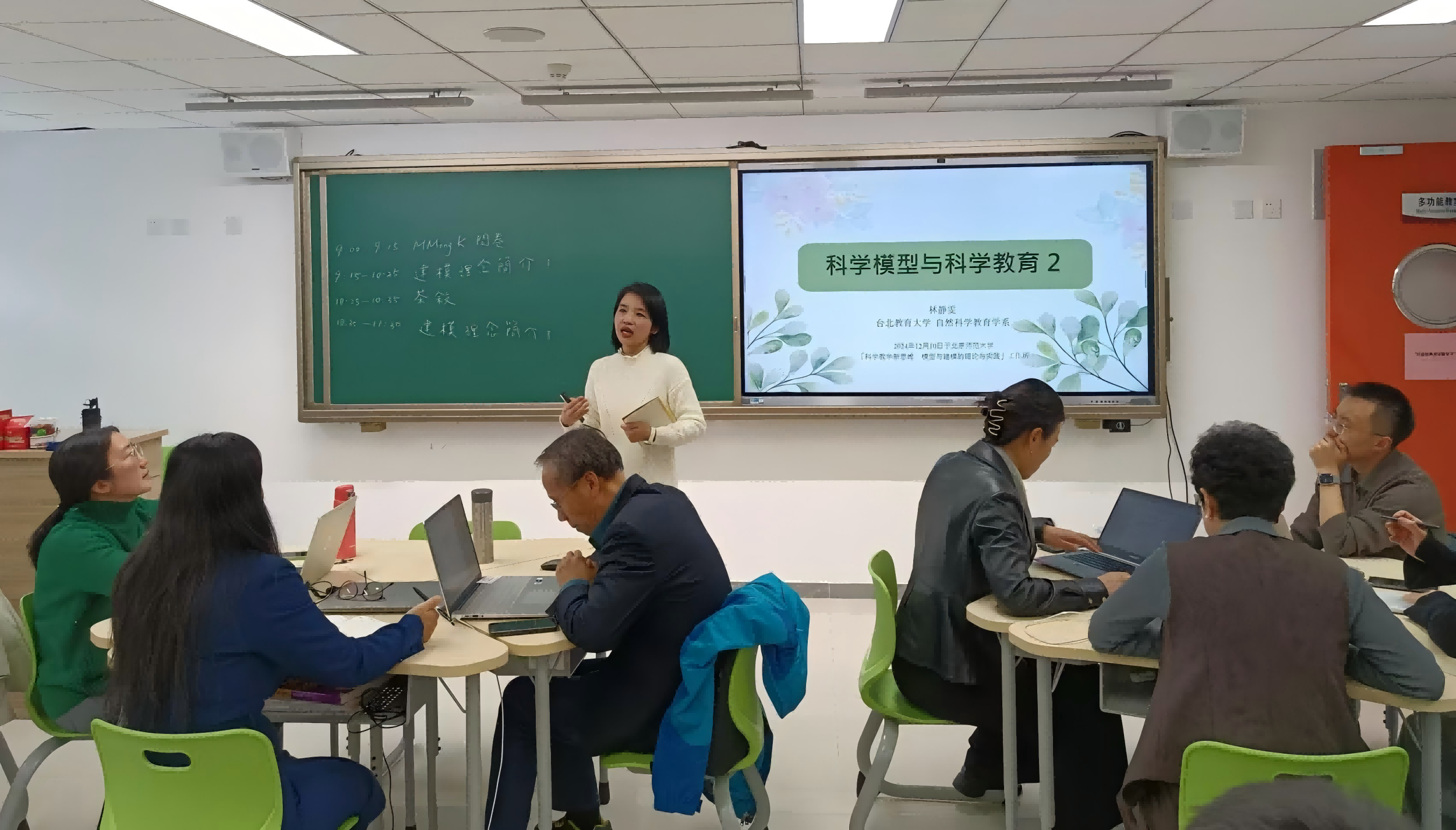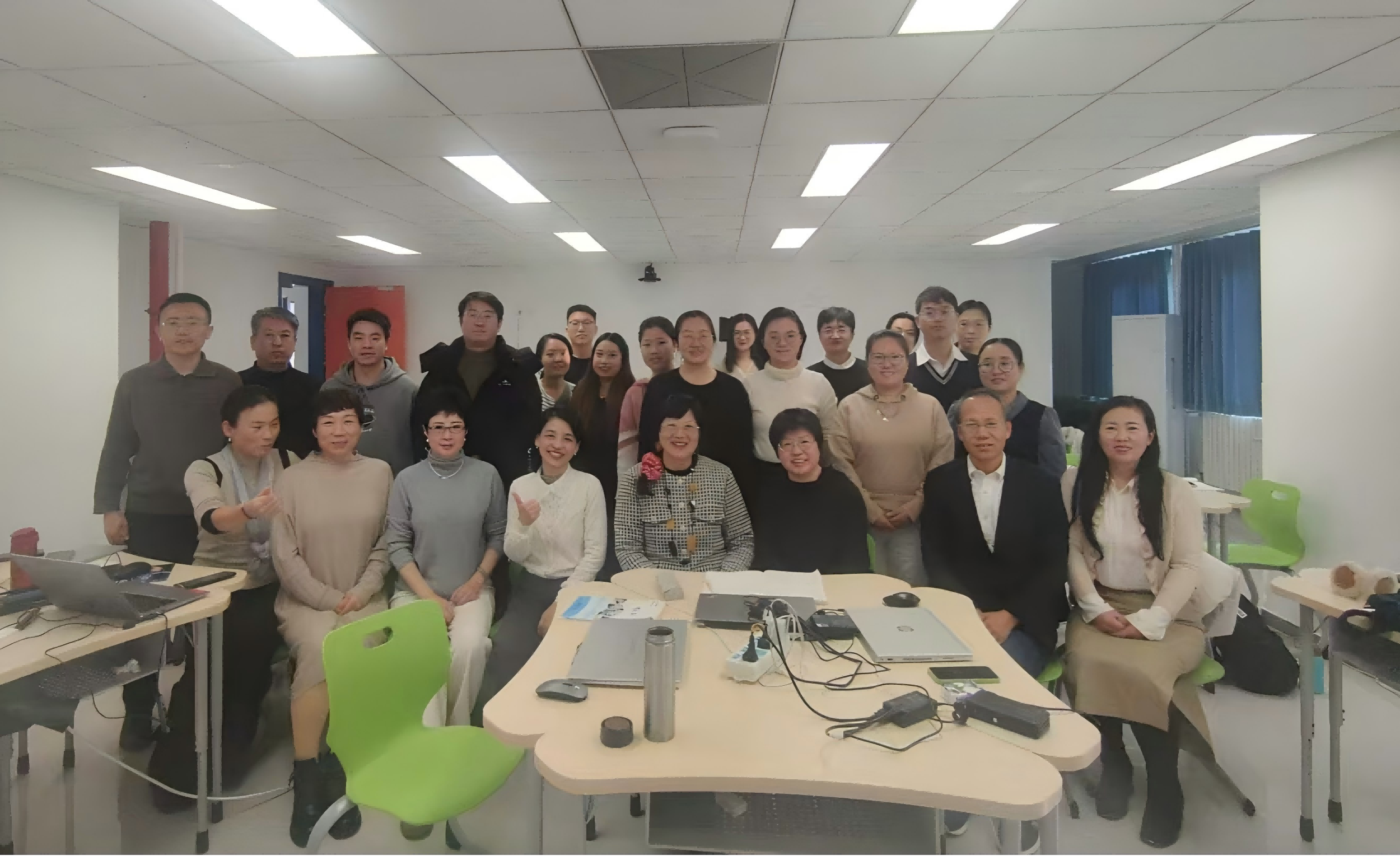为助推议题为本的科学教育范式转型,提升教师建模教学能力,助力中小学生科学建模能力提升,2024年12月10日至11日,北京师范大学社会性科学议题学习(SSI-L)项目组特邀国际科学建模研究领域专家,台湾师范大学荣誉教授、台湾师范大学原科学教育研究所所长邱美虹教授,台北教育大学自然科学教育学系林静雯教授,开展“科学教学新思维:模型与建模的理论与实践”工作坊。来自全国各地的SSI-L项目组合作团队骨干教师,以及项目办研究团队共同参加了本次工作坊。
本次工作坊持续两天。工作坊伊始,邱美虹教授介绍了什么是模型,模型与建模在学生科学学习中为何如此重要,以及建模能力的构成体系,参与教师们深受启发。林静雯教授系统阐述了从本体论、认识论与方法论三个层面来认识与解构模型的思路,参与教师们围绕NGSS各学段的物理、化学与生物学科,选取学科核心概念,集思广益、积极深入研讨,从模型简化的现象、表征类别、组成成分、成分间的关系、模型的功能与限制,全方位进行模型解构,并积极踊跃地展示模型结构的成果,不断进行交流与研讨。


第二天工作坊,邱美虹教授对比了以模型为本的教学与建模为本的教学,深入阐述了建模为本的教学是科学学习中有意义的思维实践,有助于学习者互动与辩证地参与建模实践历程,并结合具体实例系统阐述了建模为本的教学架构。林静雯教授介绍了建模教学的准备、设计原则与具体案例,参与教师们共同深入研讨,围绕选定的具体主题反复讨论,精心开展建模教学设计,各小组成员相互分享与交流,对建模教学设计不断地进行修订迭代,共同探索建模为本的教学新路径。
工作坊期间,参与教师们全身心投入,深入交流与研讨,进行思维碰撞。通过本次工作坊的深入学习与交流,教师们深刻理解了模型与建模教学的重要价值,切身体验了建模教学的设计历程。相信在未来的教学中,将以建模教学的新思维转变课堂教学,更好地开展基于社会性科学议题的教与学来促进中小学生科学建模能力的提升。

To promote the paradigm shift towards issue-based science education, enhance teachers’ abilities in modeling teaching, and improve elementary and secondary school students’ scientific modeling skills, the Socio-scientific Issues-based Learning (SSI-L) Project Team of Beijing Normal University invited leading international experts in scientific modeling research and held a workshop on “New Thinking in Science Teaching: Theory and Practice of Models and Modeling” from December 10 to 11, 2024. These experts included Professor Chiu Mei-Hung, Honorary Professor and former Director of the Graduate Institute of Science Education at National Taiwan Normal University, and Professor Lin Jing-Wen from the Department of Science Education at National Taipei University of Education. Key backbone teachers from the SSI-L project teams across the country and researchers from the project office participated in this event.
This workshop lasted for two days. It began with Professor Chiu Mei-Hung introducing the concept of models, explaining why models and modeling are crucial in students' scientific learning, and outlining the constituting structure of modeling competence. Her insights deeply inspired the participating teachers. Professor Lin Jing-Wen then systematically explained how models can be understood and deconstructed from three perspectives: ontology, epistemology, and methodology. Participants focused on core concepts in physics, chemistry, and biology as outlined in the Next Generation Science Standards (NGSS), and had collaborative brainstorming and active discussion. They comprehensively deconstructed modeling through aspects including model simplification, types of representations, model components, relationships between components, and functions and limitations of models, actively demonstrated the results of the model structure, and conducted ongoing exchange and discussion.
On the second day, Professor Chiu Mei-Hung compared model-based teaching with modeling-based teaching, and elaborated that modeling-based teaching is a meaningful cognitive practice in science learning, which helps learners to interact and engage in the modeling practice process in a dialectical way, and systematically elaborated the modeling-based teaching framework with specific examples. Following this, Professor Lin Jing-Wen introduced the preparation, design principles and specific cases of modeling teaching. Participating teachers worked collaboratively to conduct in-depth explorations and multiple rounds of discussions on selected topics, and carefully carried out modeling teaching design. Each group actively shared their ideas, exchanged feedback, continuously revised and iterated the modeling teaching design, and jointly explored new pathways for modeling-based teaching.
Participating teachers were fully engaged throughout the workshop, having in-depth exchanges, discussions, and collisions of ideas. During the workshop, this intensive learning and communication experience helped them appreciate the fundamental value of models and modeling teaching and gain firsthand experience in designing modeling-based lessons. In future teaching, the new perspective on modeling-based teaching will be used to transform classroom teaching, and better carry out SSI-based teaching and learning to enhance students' scientific modeling skills in elementary and secondary schools.
